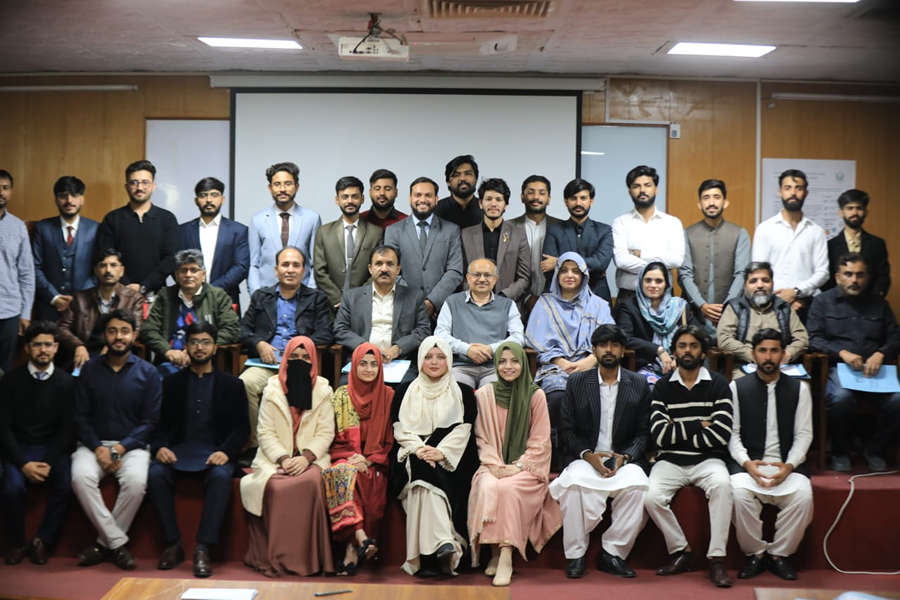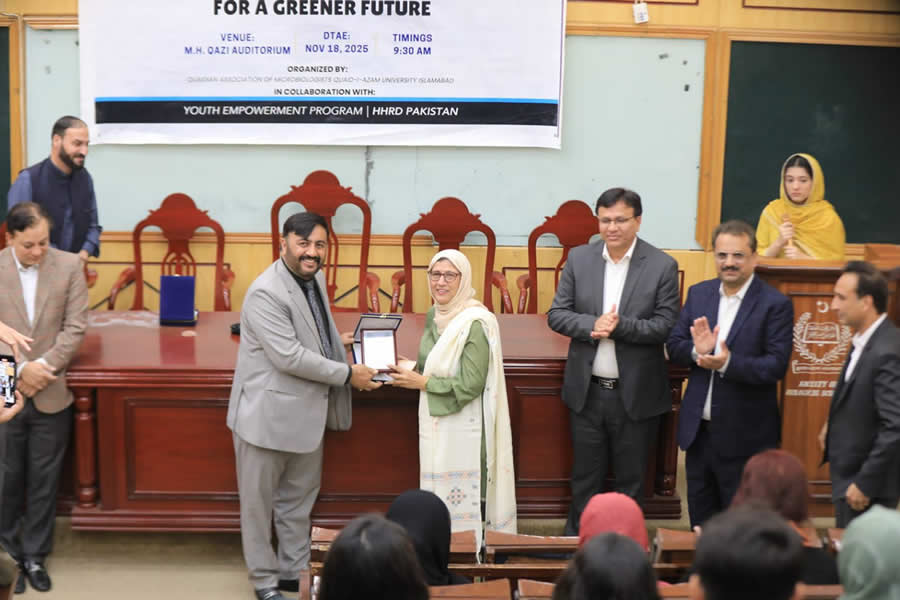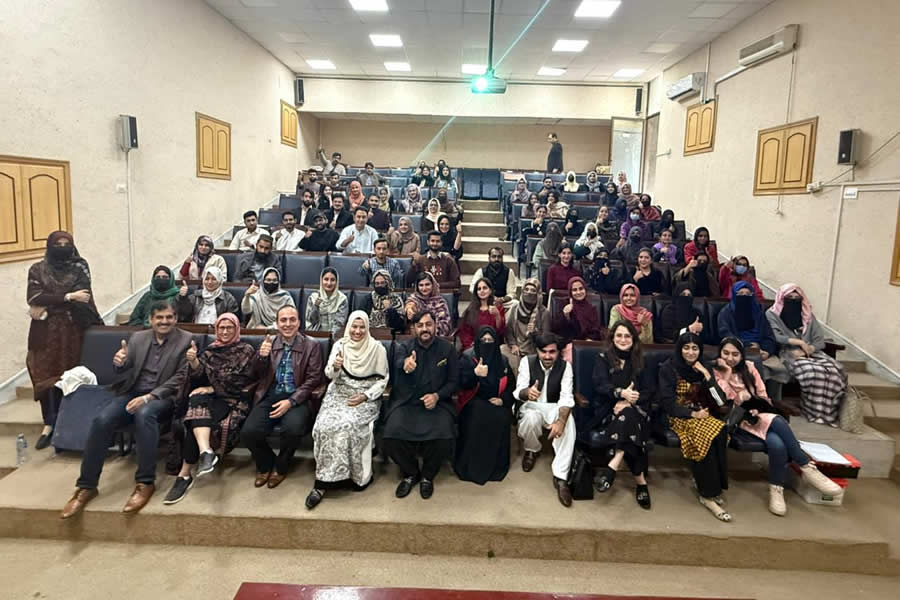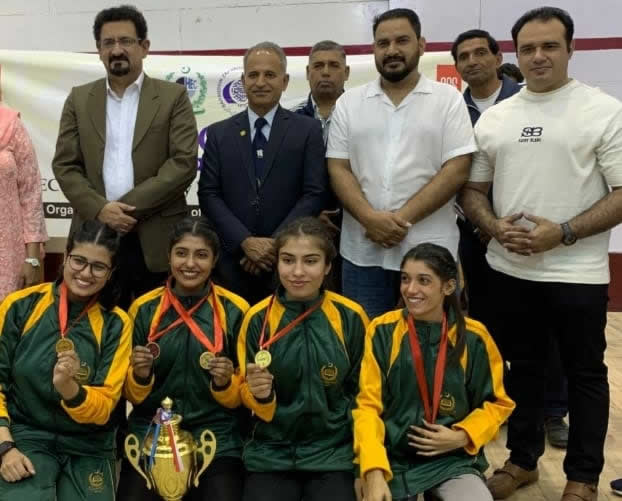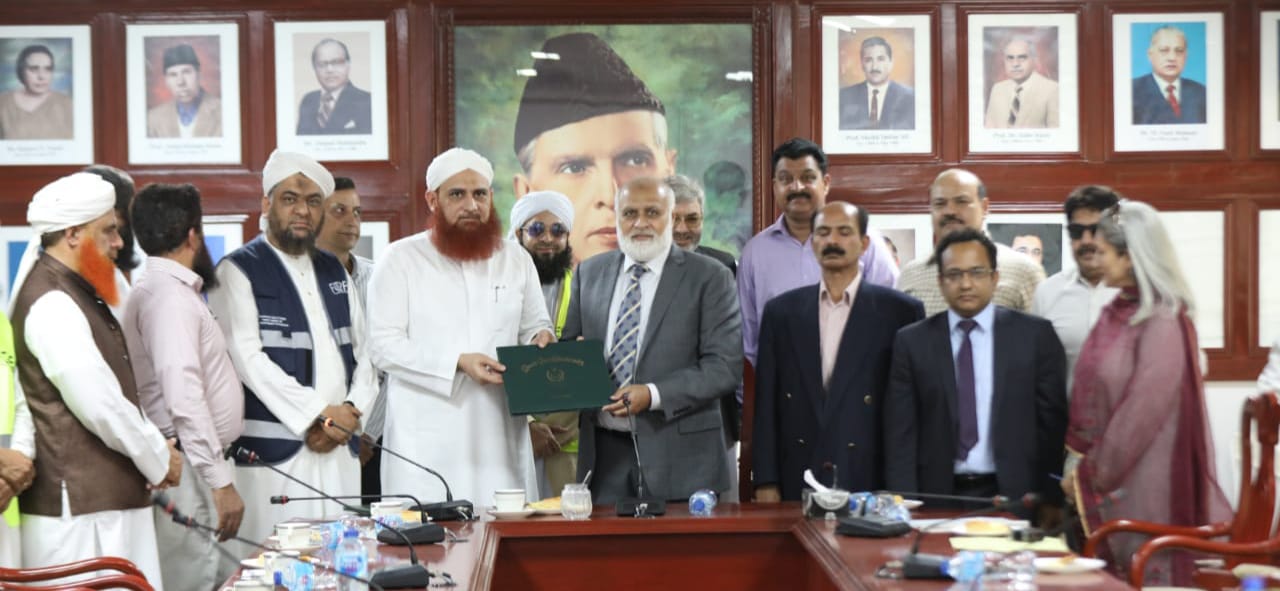The Department of Earth Sciences of QAU in collaboration with NSF has organized a 2-day workshop
The Department of Earth Sciences of Quaid-i-Azam University (QAU) in collaboration with National Science Foundation (NSF) has organized a 2-day workshop on “Indo-Asia Continental Collision” with an aim to provide a platform for local and foreign experts to dilate upon various sensitive issues related to earth and earthquakes.
During the four sessions of the workshop renowned foreign and national speakers would share their knowledge in four academic sessions of the workshop comprising earthquake hazards, Indo-Asia Collision, Lithospheric deformation, and climate and tectonics. Positive developments will be brought forwarded to the concerned authorities for future remedial action plan and identification of hazard sites.
In his Welcome address, Dr. Masoom Yasinzai, Vice Chancellor, Quaid-i-Azam University said that Plate Tectonics is such an important issue for Pakistan as we live at the foothill of lesser Himalayas; an area prone to earthquakes and major plate boundaries, along with about 44 active faults. The field of seismology was almost dormant since the occurrence of October 08 Earthquake.
He emphasized that oil & gas data comprising of seismic reflection time section should be used to study the stereography of Earth and identify locations of blind faults, pop-up structure, and areas prone to generation of future earthquakes.
He said that QAU with the sponsorship of HEC is committed to support these kinds of studies and it is expected that this year a large amount of funding would be provided by the Higher Education Commission (HEC) to support ongoing research activities, new endeavors, and research at M.Phil and Ph.D level through indigenous fellowships.
Addressing the seminar, Dr. Zulfiqar Ahmad, chairperson of the QAU’s Earth Sciences Department said that the northern Pakistan is prone to about 44 active faults where earthquakes of moderate to high magnitude could trigger in the next 25 years if the energy accumulation is built up due to the movement of tectonic plates. He said the workshop would bring together geoscientists from the USA and Pakistan, and would propose to combine remote sensing and tomographic studies with geo-chemical, isotopic and geo-chronological studies on ophiolites and arc volcanics.
Higher Education Commission (HEC) chairman Dr. Javaid Laghari, said that HEC has been focusing on building institutions and in this process the priority is to provide quality teaching particularly in public sector universities of Pakistan. He lauded the Quaid-i-Azam University’s efforts for hosting such a wonderful event and providing researchers a platform to share their views.
Roger Bilham from Department of Geological Sciences at University of Colorado in his presentation on “Earthquakes and Geodesy: an emerging GPS view of Pakistan Tectonics” said the five years since the devastating 2005 earthquake has seen the widespread application of GPS measurements in Pakistan with an accompanying remarkable advance in understanding of the deformation processes of the collision of the corner of the Indian plate with Asia.
He said in a few places along the western boundary in Balochistan there is evidence that the zone of deformation is focused on single fault that may be slipping seismically close to the surface.
Dr. Martin Flower from University of Illinois while giving his presentation on “Plate Collision End-games: A Possible Role for Collision-Induced Mantle Extrusion” said their current work focuses on ophiolites in the complex NW India-Asia syntaxis where a collage of accreted micro-continents is associated with a complex sequence of neo-Tethyan basin closure, in many cases post-dating those associated with the ‘hard’ of India.
He said the Cenozoic Makran complex represents a unique sub parallel sequence of southward-convex ophiolites, perhaps reflecting rapid episodes of basin opening, and closure, early quaternary volcanism of Afghanistan, and Pleistocene calcalkaline activity in Koh-i-Sultan.
A number of foreign delegates participated in the workshop and presented there papers including Dr. Roger Bilham, University of Colorado, Dr. Andrew Meiggs, Oregon State University, Dr. Martin Flower, University of Illinois, Chicago, Dr. Shuhab Khan, University of Houston, Dr. Alan Fryer, University of Kentucky, Dr. Rebecca Bendick, University of Montana, Dr. John Yule, University of California, North Ridge, Shams Ul-Hadi, University of Houston.
Dr. Akhtar Kassi, University of Balochistan, Dr. Irshad Ahmad, University of Peshawar, Dr. Kahlid Mahmood, University of Sargodha, Dr. Sajjad Ahmad, Department of Geology, University of Peshawar, Dr. Mohammad Sayab, University of Peshawar, Dr. Ali Tabrez, National Institute for Oceanography, Karachi, Dr. M. Rushtam Khan, Institute of Geology, University of AGK, Muzzafarabad, Dr. Mahmood Raza, Higher Education Commission also participated the workshop.
The workshop was well attended by faculty members Researchers, foreign delegates, Geoscientists, Students, and Scholars.
 QAU Microbiology Alumni Annual Dinner – A Celebration of Friendship and Success
QAU Microbiology Alumni Annual Dinner – A Celebration of Friendship and Success




